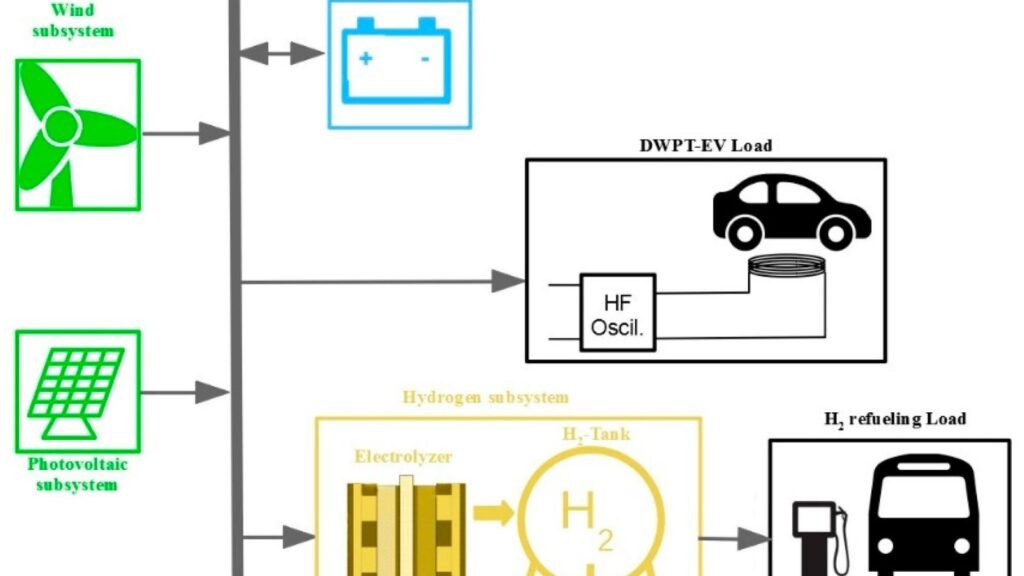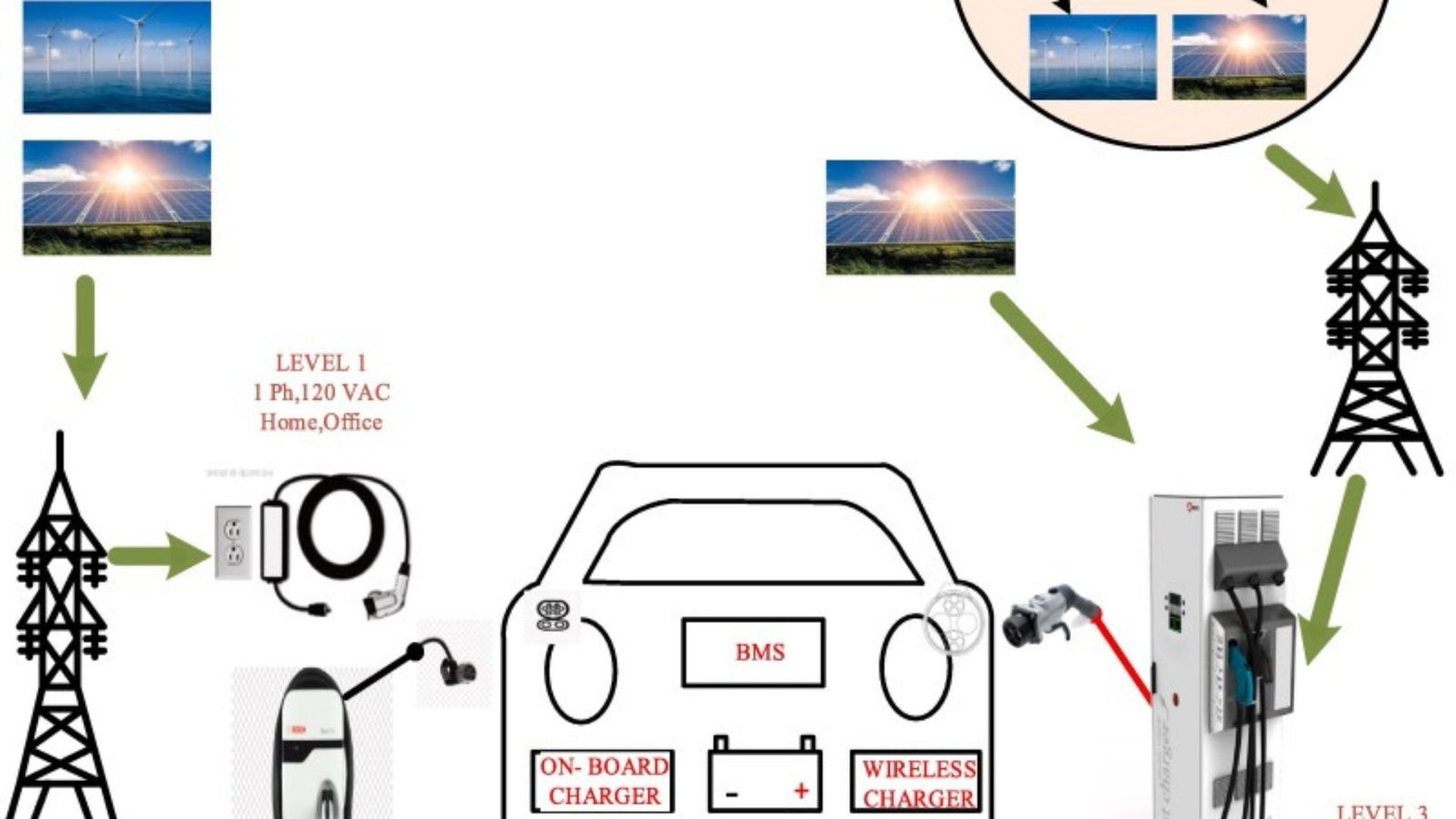Charging Infrastructure Developments for Hybrid Vehicles
As hybrid vehicles become more popular, the need for reliable and accessible charging infrastructure is growing rapidly. Hybrid vehicles, which combine an internal combustion engine with an electric motor, offer many benefits, including improved fuel efficiency and reduced emissions. However, to fully enjoy these benefits, a well-developed charging infrastructure is essential. In this article, we will explore the recent charging infrastructure developments for hybrid vehicles, discussing how these advancements are making charging more accessible and convenient for drivers.

1. Expansion of Public Charging Stations
Increasing Availability of Charging Points
One of the most important developments in charging infrastructure for hybrid vehicles is the expansion of public charging stations. These stations are becoming more common in urban areas, shopping centers, and along highways, making it easier for hybrid vehicle owners to find a place to charge their cars. With more charging points available, drivers can worry less about running out of battery power during their daily commutes or long trips.
Faster Charging Options
In addition to the growing number of charging stations, many locations are now offering faster charging options. Fast chargers can significantly reduce the time it takes to recharge a hybrid vehicle, allowing drivers to get back on the road quickly. This convenience is especially important for those who use their hybrid vehicles for long-distance travel or who have limited time to charge during the day.
2. Home Charging Solutions
Convenience of Charging at Home
Another key development in the charging infrastructure for hybrid vehicles is the increasing availability of home charging solutions. Charging at home is one of the most convenient ways to keep a hybrid vehicle powered up. With a home charging station, drivers can simply plug in their vehicle overnight and have a fully charged battery by morning. This eliminates the need to visit public charging stations regularly, saving time and providing peace of mind.
Installation of Home Chargers
The process of installing a home charging station has also become easier and more affordable. Many manufacturers now offer installation services when you purchase a hybrid vehicle, ensuring that your home charger is set up correctly and safely. Additionally, some governments offer incentives or rebates to help cover the cost of installation, making it even more accessible for hybrid vehicle owners.
3. Government Initiatives and Incentives
Supporting Infrastructure Growth
Government initiatives and incentives are playing a crucial role in the development of charging infrastructure for hybrid vehicles. Many countries are investing in the expansion of public charging networks, providing funding to build more charging stations in key locations. These efforts help ensure that charging infrastructure keeps pace with the growing number of hybrid vehicles on the road.
Financial Incentives for Hybrid Owners
In addition to supporting infrastructure growth, governments are also offering financial incentives to encourage more people to switch to hybrid vehicles. These incentives often include tax credits, rebates, or discounts on home charging station installations. By making hybrid vehicles more affordable and charging more accessible, these initiatives are helping to drive the adoption of hybrid technology.
4. Advancements in Charging Technology
Improved Charging Speed and Efficiency
Advancements in charging technology are also contributing to the development of infrastructure for hybrid vehicles. New charging stations are being designed to deliver power more efficiently and at faster rates. This means that hybrid vehicle owners can spend less time waiting for their cars to charge and more time enjoying the benefits of their vehicles.
Wireless Charging
One of the most exciting advancements in charging technology is the development of wireless charging. Although still in its early stages, wireless charging has the potential to make charging hybrid vehicles even more convenient. By eliminating the need for cables and plugs, wireless charging could allow drivers to simply park their vehicles over a charging pad and start charging automatically.
5. Integration with Renewable Energy
Using Solar and Wind Power
As the world moves toward more sustainable energy sources, the integration of renewable energy with charging infrastructure for hybrid vehicles is gaining attention. Some charging stations are now being powered by solar or wind energy, reducing their environmental impact. This integration not only supports the use of hybrid vehicles but also contributes to broader efforts to combat climate change.
Benefits of Green Charging
Charging hybrid vehicles with renewable energy offers several benefits. It further reduces the carbon footprint of driving a hybrid vehicle, making it an even greener choice. Moreover, using renewable energy for charging can lower the cost of electricity, providing financial savings for hybrid vehicle owners over time.
6. The Future of Charging Infrastructure
Continued Growth and Innovation
The future of charging infrastructure for hybrid vehicles looks bright, with continued growth and innovation expected in the coming years. As more people adopt hybrid vehicles, the demand for reliable and accessible charging options will only increase. Manufacturers, governments, and technology companies are working together to meet this demand by developing new solutions that make charging faster, easier, and more convenient.
Preparing for Widespread Adoption
As charging infrastructure continues to develop, it will play a crucial role in supporting the widespread adoption of hybrid vehicles. With better charging options available, more people will be encouraged to make the switch to hybrids, contributing to a cleaner and more sustainable future.
Conclusion
In conclusion, the charging infrastructure for hybrid vehicles is evolving rapidly, with significant developments in public charging stations, home charging solutions, government initiatives, and technological advancements. As these improvements continue, hybrid vehicle owners can expect more convenient, efficient, and accessible charging options, making hybrid vehicles an even more attractive choice for drivers. The ongoing growth and innovation in this area will be key to supporting the continued adoption of hybrid vehicles and the transition to a more sustainable transportation system.

